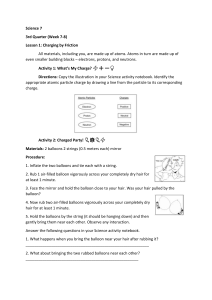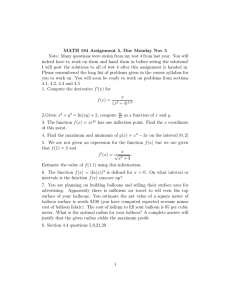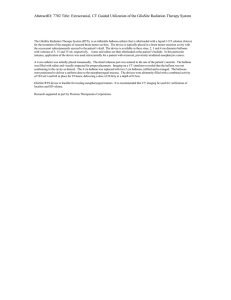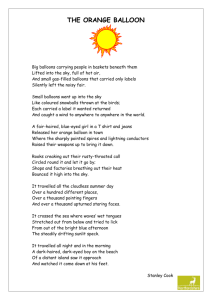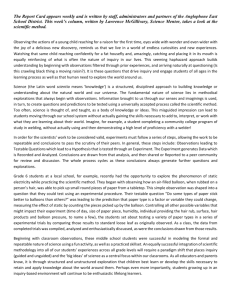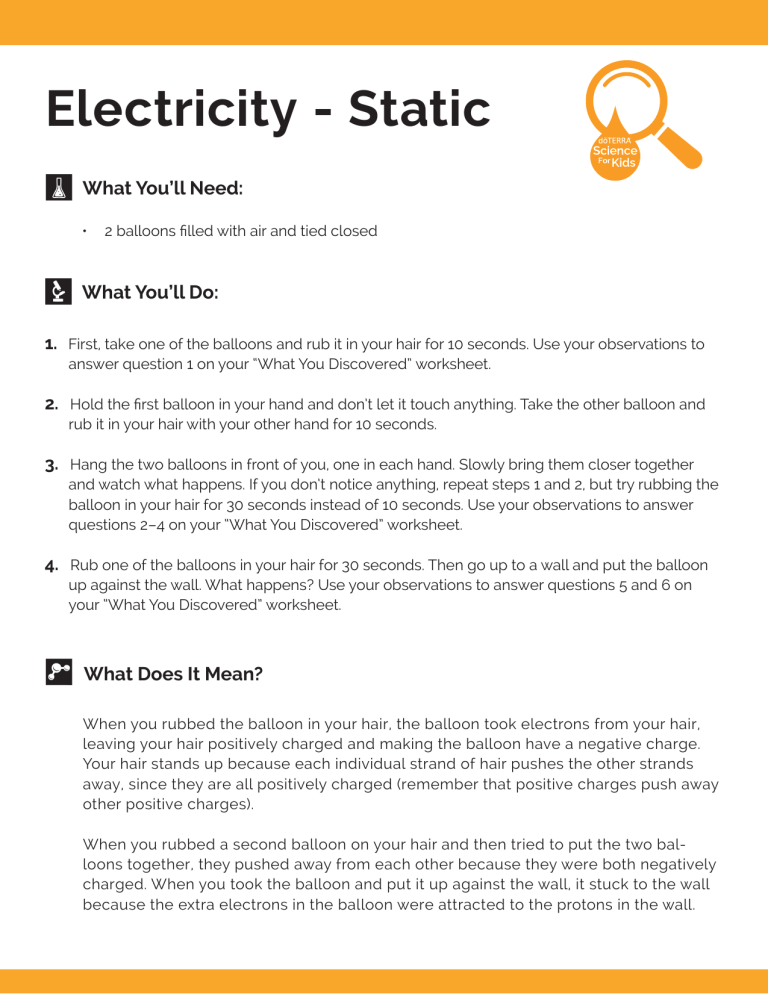
Electricity - Static / What You’ll Need: • 2 balloons filled with air and tied closed 0 What You’ll Do: 1. First, take one of the balloons and rub it in your hair for 10 seconds. Use your observations to answer question 1 on your “What You Discovered” worksheet. 2. Hold the first balloon in your hand and don’t let it touch anything. Take the other balloon and rub it in your hair with your other hand for 10 seconds. 3. Hang the two balloons in front of you, one in each hand. Slowly bring them closer together and watch what happens. If you don’t notice anything, repeat steps 1 and 2, but try rubbing the balloon in your hair for 30 seconds instead of 10 seconds. Use your observations to answer questions 2–4 on your “What You Discovered” worksheet. 4. Rub one of the balloons in your hair for 30 seconds. Then go up to a wall and put the balloon up against the wall. What happens? Use your observations to answer questions 5 and 6 on your “What You Discovered” worksheet. , What Does It Mean? When you rubbed the balloon in your hair, the balloon took electrons from your hair, leaving your hair positively charged and making the balloon have a negative charge. Your hair stands up because each individual strand of hair pushes the other strands away, since they are all positively charged (remember that positive charges push away other positive charges). When you rubbed a second balloon on your hair and then tried to put the two balloons together, they pushed away from each other because they were both negatively charged. When you took the balloon and put it up against the wall, it stuck to the wall because the extra electrons in the balloon were attracted to the protons in the wall. 6 What You Discovered: As part of your electricity #1 experiment, answer the questions below. 1. What happened to your hair when you rubbed it with the balloon? 2. What happened when you put the two balloons close together? 3. What does this tell you about the charge on the two balloons? 4. If your hair is positively charged after rubbing it with the balloons, what must the charge on the balloons be? 5. What happened when you put the balloon up to the wall? 6. Why do you think this happened? Write down your hypothesis.
